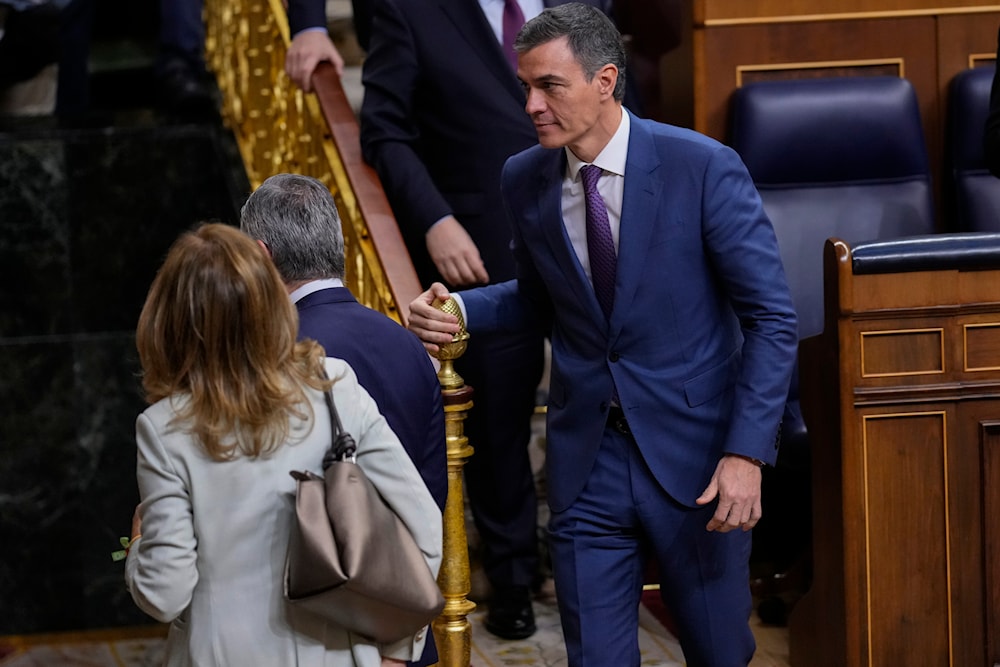Spain passes bill to grant amnesty to Catalan independence parties
The bill is now to move on to the Senate, which is controlled by the right-wing opposition Popular Party (PP), which is openly opposed to it, proving a looming obstacle.
-

Spain's Socialist Prime Minister Pedro Sanchez leaves the Spanish Parliament in Madrid, Spain, Thursday, March 14, 2024 (AP)
Spain finally approved a bill granting amnesty to Catalan independence parties as leader Carles Puigdemont considers his return home years after self-imposed exile to avoid prosecution over the 2017 independence bid.
This move marks a key moment for Prime Minister Pedro Sanchez since this is the result of a demand by the independence-seeking parties in exchange for their support to allow him to serve a new term in office.
Sanchez took to X to praise the bill as a "courageous and necessary step," entering "a new era of coexistence and prosperity in Catalonia."
Un paso valiente y necesario hacia el reencuentro.
— Pedro Sánchez (@sanchezcastejon) March 14, 2024
Con la aprobación de la ley de amnistía abrimos un tiempo nuevo de convivencia y prosperidad en Cataluña.
The bill is now to move on to the Senate, which is controlled by the right-wing opposition Popular Party (PP), which is openly opposed to it.
The PP vowed to impede passing the bill before it reaches the Congress lower house for final approval.
Drafted by Socialists and two Catalan independence parties, the bill is the most controversial text of legislation parliament voted on since Sanchez came to office in 2018.
It aims to resolve the conflict and bring stability, as confirmed by Sanchez's Spanish Socialist Party (PSOE) official Santos Cerdan during a news conference in Brussels last year after talks with Puigdemont, the Brussels-based leader of Catalan's independence parties.
"Six years have passed [since the secession attempt] and the conflict is still unresolved," Cerdan said, adding, "Our goal is to start a new chapter (...) where the errors of the past are no longer obstacles to overcome."
If finally approved, the bill could pardon as many as 1,400 activists and politicians involved in the attempt to separate Catalonia from Spain in 2017.
The legislation will probably move to the country's Constitutional Court for a judicial review.
Sanchez's party failed to secure a parliamentary majority in last year's elections, forcing him to seek nontraditional relations with Catalonia's independence-seeking party JxCat to keep his government afloat.
In January, legislators shot down a first amnesty bill as JxCat MPs stated it needs to be more inclusive of all people related to the case, mainly Puigdemont.
A Barcelona magistrate who disapproves of the bill stated he was "extending his probe" into alleged ties "between Puigdemont and the Kremlin," claiming he had sought Russian support for a Catalan state. He further claimed he has evidence of "close personal relationships" between Puigdemont's inner circle and Russians "close to the Russian secret service."
According to El Pais Daily, this obstacle could lead to "treason charges" against Puigdemont not falling under the amnesty law.

 3 Min Read
3 Min Read








